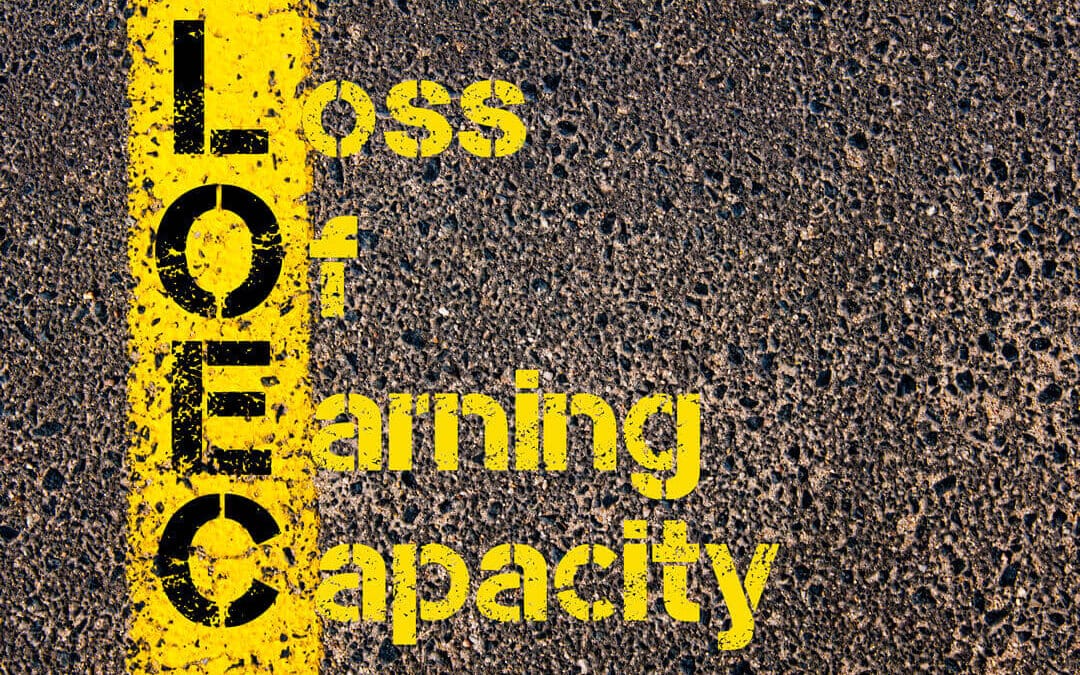Suffering an injury in an accident that was not your fault can have devastating financial consequences. In addition to mounting medical expenses, you may be unable to work during your recovery. Even more concerning, your injuries may permanently impact your ability to earn income in the future. This is where the legal concept of “loss of earning capacity” becomes relevant.
Loss of earning capacity is a critical component of personal injury compensation. In this article, we will explore how it differs from lost wages, the factors that influence its calculation, and the process for recovering compensation.
Understanding Loss of Earning Capacity
Loss of earning capacity differs from lost wages in a legal context. Lost wages refer to the income you were unable to earn during your recovery period. In contrast, loss of earning capacity considers the long-term financial impact of your injuries, including any reduction in your ability to earn income in the future.
Your ability to work and earn a living is considered an asset, much like property or investments. When a severe injury diminishes or eliminates this ability, your long-term financial stability may be significantly affected. Compensation for loss of earning capacity seeks to address this reduced earning potential and ensure you receive fair compensation for the financial hardships caused by your injuries.
Factors Affecting Loss of Earning Capacity
Determining the value of loss of earning capacity is a complex process influenced by several key factors:
1. Nature and Severity of Injuries
The extent of your injuries plays a crucial role in calculating loss of earning capacity. Severe injuries, such as traumatic brain injuries, spinal cord damage, or limb loss, have a more profound impact on earning potential than minor or temporary injuries.
2. Age and Work-Life Expectancy
Your age at the time of the accident and your expected remaining work years are significant considerations. Younger individuals with many years left in their careers may experience a greater loss of earning capacity than those closer to retirement.
3. Education, Skills, and Job History
Your educational background, specialized skills, and prior work history are important in determining pre-injury earning potential. Individuals with advanced degrees, specialized training, or strong career trajectories often face greater financial losses when their earning potential is reduced.
4. Job Market and Wage Growth
The demand for your profession, industry trends, and expected salary growth also factor into the calculation. If your field offers high earning potential and career advancement, the impact of your reduced ability to work may be more significant.
5. Self-Employment and Business Ownership
For self-employed individuals and business owners, calculating loss of earning capacity is more complex. Experts may need to assess business performance, revenue trends, and the injured party’s role in generating income.
Proving Loss of Earning Capacity
To obtain compensation for loss of earning capacity, you must provide substantial evidence demonstrating the extent of your financial losses. This typically involves:
1. Medical Records and Expert Testimony
Medical records and expert opinions from healthcare professionals help establish the severity and long-term impact of your injuries. This documentation is crucial in demonstrating that your disabilities are permanent and affect your ability to work.
2. Employment and Income History
Providing detailed records of your job history, earnings, and responsibilities before the injury helps establish a baseline for your pre-injury earning capacity. Projections of potential future earnings can illustrate how much income you may lose over time.
3. Vocational Expert Evaluation
Vocational experts assess your skills, education, work experience, and current job market conditions to determine alternative employment options and the difference in earning potential before and after the injury.
4. Financial Expert Analysis
Economists and forensic accountants analyze various financial factors, including wage growth, inflation, and work-life expectancy, to calculate the present value of your lost earning potential.
Challenges and Considerations
Proving loss of earning capacity can be challenging due to several factors:
1. Speculative Nature of the Claim
Because loss of earning capacity involves future earnings, insurance companies and opposing parties may argue that the estimates are speculative and unreliable.
2. Pre-existing Conditions and Lifestyle Factors
Defendants may contend that pre-existing health conditions or lifestyle choices, rather than the accident, are responsible for reduced earning potential.
3. Duty to Mitigate Damages
Injury victims are expected to make reasonable efforts to minimize their financial losses by seeking alternative employment or retraining for a new career. Failure to do so may reduce the amount of compensation awarded.
4. Negotiating Settlements
Settlement negotiations may require some compromise on the full value of a claim in order to reach an agreement and avoid the risks and costs associated with litigation.
Seeking Legal Assistance
Navigating a loss of earning capacity claim can be complex, making legal representation essential. An experienced personal injury attorney can:
- Gather the necessary documentation to support your claim
- Engage qualified experts to provide credible testimony
- Negotiate with insurance companies and opposing counsel for maximum compensation
- Protect your rights and ensure you receive the full damages you deserve
For nearly three decades, the personal injury attorneys at Brock & Stout have helped clients recover the compensation they need for both immediate and long-term financial stability. Contact us for a free evaluation of your injury claim to see how we can assist you.

